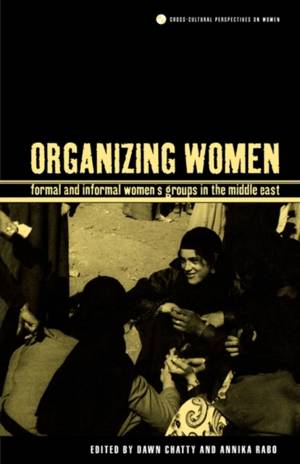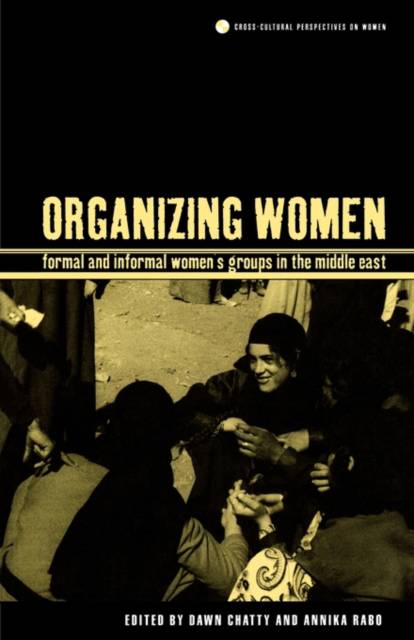
Je cadeautjes zeker op tijd in huis hebben voor de feestdagen? Kom langs in onze winkels en vind het perfecte geschenk!
- Afhalen na 1 uur in een winkel met voorraad
- Gratis thuislevering in België vanaf € 30
- Ruim aanbod met 7 miljoen producten
Je cadeautjes zeker op tijd in huis hebben voor de feestdagen? Kom langs in onze winkels en vind het perfecte geschenk!
- Afhalen na 1 uur in een winkel met voorraad
- Gratis thuislevering in België vanaf € 30
- Ruim aanbod met 7 miljoen producten
Zoeken
Organizing Women
Formal and Informal Women's Groups in the Middle East
€ 79,45
+ 158 punten
Omschrijving
With the creation of the modern nation-state in the Middle East and North Africa, women have been and continue to be manipulated to represent a cultural ideal of perfect womanhood. This is often greatly at odds with the realities of women's lives and aspirations. However, individual women, through careful manipulation of gender relations, often succeed in casting aside the culturally accepted bonds which diminish their lives.Even so, women in groups are deemed unacceptable unless they conform to state mandates. In many countries in the Middle East, women are only legally permitted to form groups which are charitable organizations concerned with the welfare of the disabled or the handicapped. Clearly women in groups are perceived as a threat by the state.This challenging book examines the nature of the relationship between both women and the state and men and the state. It presents a balanced mix of theoretical and empirical research which analyzes both the formal and informal ways in which women have organized themselves, and been organized, in Arab society.
Specificaties
Betrokkenen
- Uitgeverij:
Inhoud
- Aantal bladzijden:
- 260
- Taal:
- Engels
- Reeks:
Eigenschappen
- Productcode (EAN):
- 9781859739150
- Verschijningsdatum:
- 5/01/1997
- Uitvoering:
- Paperback
- Formaat:
- Trade paperback (VS)
- Afmetingen:
- 139 mm x 215 mm
- Gewicht:
- 272 g

Alleen bij Standaard Boekhandel
+ 158 punten op je klantenkaart van Standaard Boekhandel
Beoordelingen
We publiceren alleen reviews die voldoen aan de voorwaarden voor reviews. Bekijk onze voorwaarden voor reviews.








